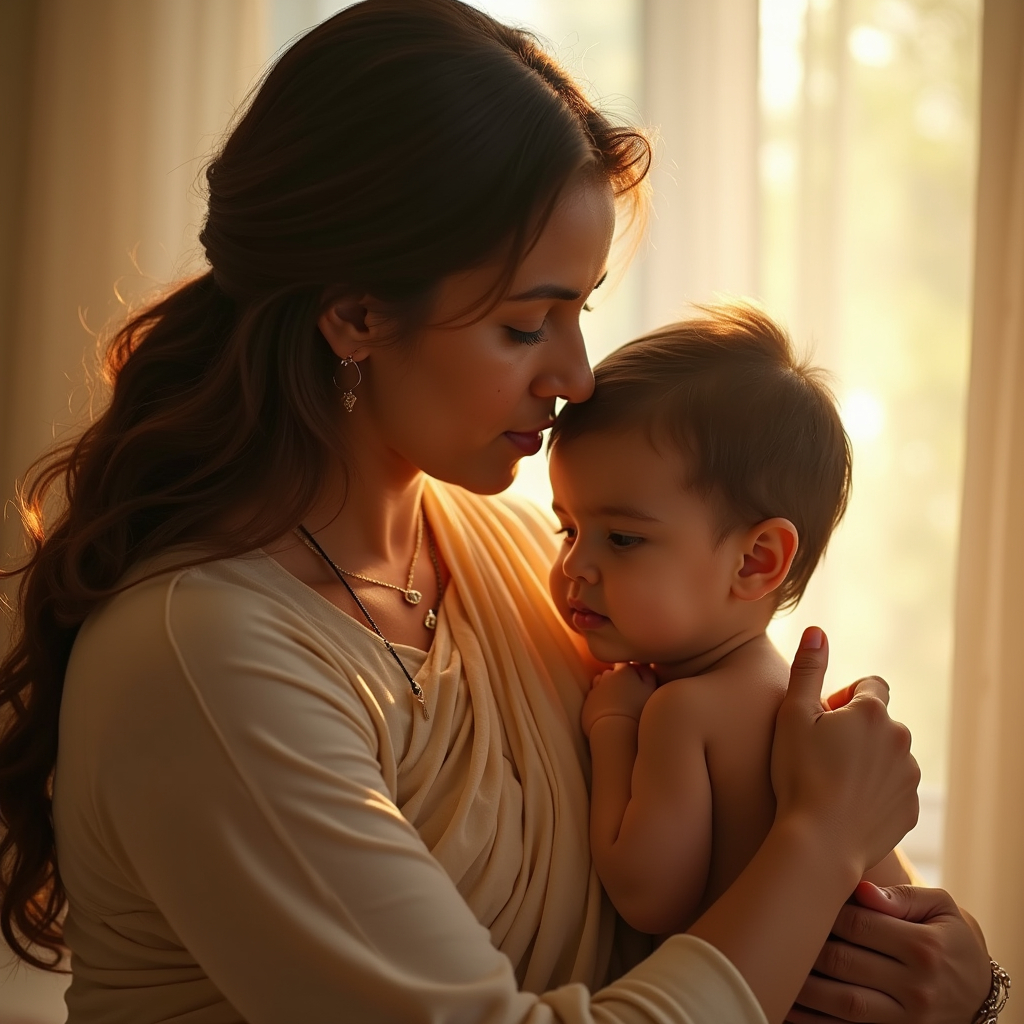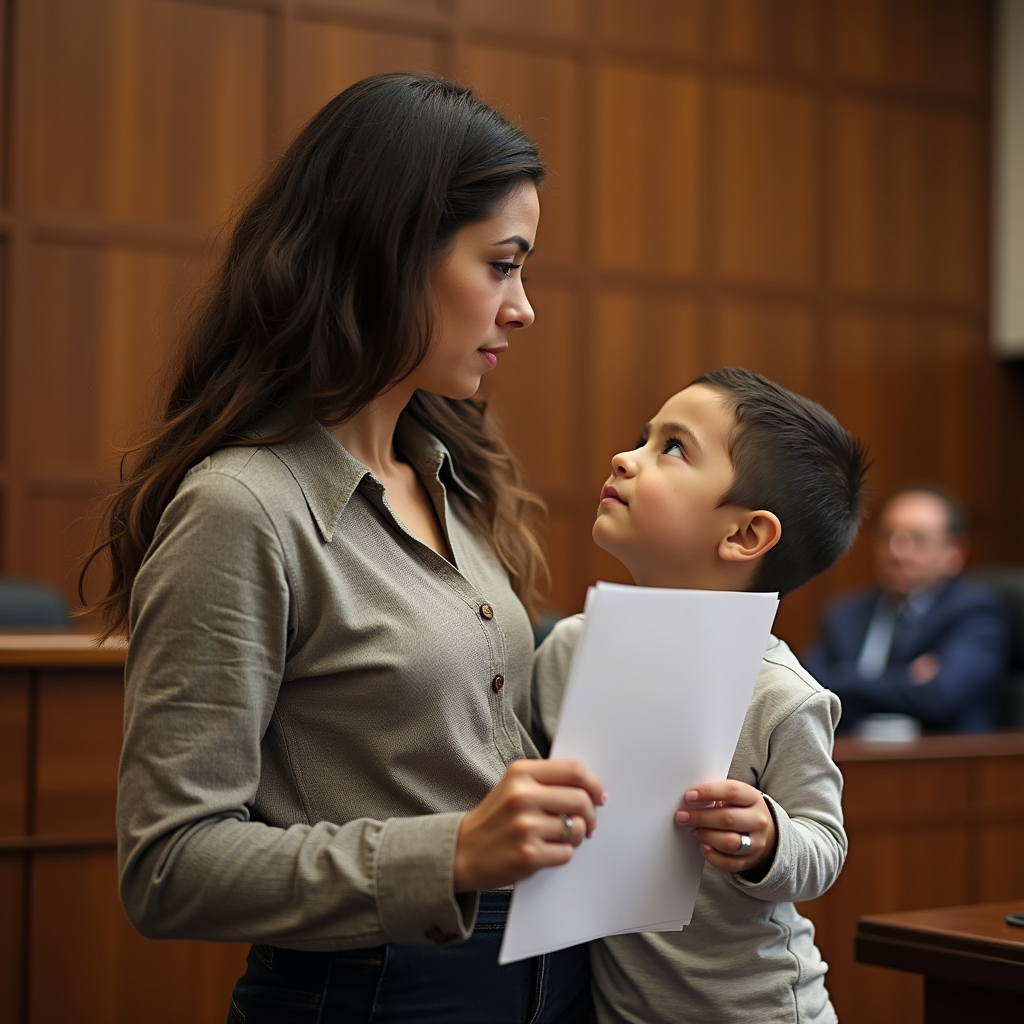This article is written by Shamyana Parveen. This article would enable the readers to understand the concept of Section 6 of the Hindu Minority and Guardianship Act, 1956, which explains the natural guardian of a child or who can be a guardian of a child. The law of guardianship is based on the incapacity that the law attributes to minors and to persons who are deficient in mental capacity. It is presumed that such persons are incapable of looking after themselves, maintaining their property or entering into contracts. It is therefore necessary to entrust the management of their affairs to suitable persons who are known as their guardians.
Table of Contents
Introduction
On August 25, 1956, the Hindu Minority and Guardianship Act, 1956, was enacted. Originally, guardianship in most legal systems was an extension of the father’s authority. In modern law, it essentially implies the idea of minor protection. The Hindu Minority and Guardianship Act, 1956, has improved the status of the mother as the natural guardian. Under old Hindu law, the mother could not act as the natural guardian of the child when the father had written a testament depriving her of the natural guardianship of the minor.
Under the present Act, if the father appoints a testamentary guardian of his minor children, then on his death, the guardian appointed by the father shall not act as a guardian if the mother is alive. In such cases, the mother shall be the natural guardian of her minor children. In addition, if she wants, she can abrogate the testament of her husband and appoint, by her will, any other person as the guardian of her minor children. Section 6 of the Act provides that in the case of a boy or unmarried girl, the father and, after him, the mother shall be natural guardians. Section 6(a) of the Act further provides that the custody of a child under the age of five years will be with the mother, although the father may be the natural guardian. The long list of natural guardians existing under the old Hindu law has been reduced to three only, i.e., father, mother, and husband.
Under Section 4(a) of the Hindu Minority and Guardianship Act, 1956, a minor is defined as a person who has not completed the age of eighteen years. A minor is considered to be a person who is physically and intellectually immature and, therefore, in need of protection. In modern legal systems, childhood is accorded protection in multifarious ways. A guardian is defined as “a person having the care of the person of a minor, of his property or of both his person and property.” In the modern legal system, guardians exist essentially for the protection and care of the child and to look after its welfare. This is expressed by saying that the welfare of the child is of paramount consideration. Welfare includes both physical and moral well-being.
Guardians may be of three kinds:
- Natural guardians.
- Testamentary guardians.
- Guardian appointed or declared by the court.
Who is a guardian
According to Section 4(b) of the Hindu Minority and Guardianship Act, 1956, “guardian” means when a person is acting for a minor person in one or many aspects, or when a person is defending or managing a minor’s property or both. A “guardian” is a person who has custody of a minor person, minor property, or both. Guardian means a natural guardian, a person who is the guardian of a minor. Whereas a testamentary guardian and a guardian appointed by the Court, is a person of the minor who is named by the will of the father or mother of the minor, or who is appointed or declared by a court, and a person authorised to act as such by or under any enactment referable to any court of wards.
Minor cannot take care of themselves and their property and cannot enter into any agreement. Therefore, they need guidance from their parents or guardians. A guardian is a person who takes care of minors and guides them in every step of life. Guardians prevent minors from doing any wrongful act and guide them to make the right decision.
Explanation of Section 6 of Hindu Minority and Guardianship Act : natural guardians of a Hindu minor
According to Section 6 of the Hindu Minority and Guardianship Act, 1956, the natural guardians of a Hindu minor are firstly the father and secondly the mother. This section states that the natural guardians of a Hindu minor, in relation to the minor’s person and the minor’s property (excluding his or her undivided interest in joint family property), are:
- In the case of a boy or an unmarried girl, this section states that the father will be the primary natural guardian and, after him, the mother shall be the natural guardian.

If the minor is a child of tender years, that is, below the age of five years, the law prescribes that although the natural guardian of the child may be the father, in the interest and welfare of the child, the mother shall ordinarily have custody unless the court thinks that it would be otherwise beneficial to the minor. The paramount consideration governing the custody of the children is the welfare of the children, not the rights of the parents. In the case of Roxann Sharma vs. Arun Sharma (2015), the word “ordinarily” used in Section 6 an of the Hindu Minority and Guardianship Act, 1956, “raised an invalid presumption in favour of the mother.” In general conditions, the custody of the child will go to the mother, but in exceptional circumstances, it may also go to the father.
- In the event that the child is an illegitimate boy or an illegitimate unmarried girl, the mother will be the custodian. She will be succeeded by the father, and the father will be the natural guardian.
- In the case of a married girl, the person who will be vested with the responsibility of being the natural guardian of the minor shall be the husband of the married girl.
In this section, the expressions ’father’ and ‘mother’ do not include a stepfather or stepmother.
Types of natural guardians
In Hindu law, only three persons are recognized as natural guardians, i.e., father, mother, and husband.
For a boy or an unmarried girl
For minor legitimate children, that is, sons and unmarried daughters, the father is the natural guardian. As it is laid down under “Section 19 of the Guardians and Wards Act, 1890, a father cannot be deprived of the natural guardianship of his minor children unless he has been found unfit. The effect of this provision has now been considerably whittled down by judicial decisions and by Section 13 of the Hindu Minority and Guardianship Act, 1956, which lays down that the welfare of the minor is of paramount consideration and the father’s right of guardianship is subordinate to the welfare of the child. Before 1956, the father could prevent the mother from assuming the guardianship of her minor children even after his death by appointing a testamentary guardian. This cannot be done now.
As mentioned in the Act, it says that in the event of the father being absent, unfit to be a guardian, or refusing to take care of the child, then even if a testamentary guardian is selected, the appointment of the testamentary guardian will not be effective as long as the mother is alive. In the absence of the mother, the bonds of the family are weakened. If the mother dies without appointing a testamentary guardian, if the father has appointed a testamentary guardian, then the appointee of the father will gain guardianship. However, if the mother passes on after nominating a testamentary guardian, then in that instance, the mother’s appointee will take over the guardianship of the child and the father’s appointment will be ineffective. The Act lacks such a family law concept as joint guardians. The position of adopted children is on par with that of natural-born children.
In the case of a minor boy or an unmarried girl, the father is the natural guardian of the child, and after him, the mother. The Supreme Court has made a significant judgement in Githa Hariharan vs. Reserve Bank of India (1999), where under certain circumstances the mother has been held to be the natural guardian of the minor, and the word “after” has been interpreted to mean “in the absence of rather than after the lifetime of the father.” It is further held that absence would mean a father’s physical absence from the care of a minor’s person or property for whatever reason.
Where the mother filed an application to alienate a minor’s property for educational purposes in the capacity of a guardian and the father did not oppose the same, she was recognised as the minor’s guardian and capable of filing such an application. When a minor brings a suit against the father to set aside improper alienation, the mother can act as a guardian of the minor even without seeking permission from the court.
For an illegitimate boy or an illegitimate unmarried girl

The mother is the natural guardian of the minor illegitimate children, even if the father is alive. However, she is the natural guardian of her minor legitimate children only if the father is dead or otherwise incapable of acting as guardian. Remarriage of the mother with a person of different faith cannot disqualify her from being a guardian of her minor child, especially when the child was being looked after extremely well by the mother. According to clause (a) of Section 6 of the Hindu Minority and Guardianship Act the ‘custody of a minor who has not completed the age of five shall ordinarily be with the mother. Thus, the mother is entitled to the custody of the child under five years old, unless the welfare of the minor requires otherwise. But this does not mean that she is not entitled to custody thereafter.
Mother’s right of guardianship is not lost on her conversion to another religion, so long as she is able to provide a congenial, comfortable, and happy home. The position of a mother’s guardianship of her adopted children is the same as that of her natural-born children.

It is submitted that it would be a better proposition of law if it were laid down that parents are equal and coordinated guardians of their minor children.
Under Section 125 of the Code of Criminal Procedure, 1973, and under Hindu law, the statutory duty to maintain an illegitimate child is on the father and hence it seems that the mother, while acting as a guardian of the child and keeping the child in her custody, will be entitled to claim maintenance both under criminal law and Hindu law from the father.
For a married girl
Under Section 6(c) of the Hindu Minority and Guardianship Act, 1956, the husband is the natural guardian of his minor wife and the law casts upon him the burden of maintaining her as well. This Act omits to provide for the contingency arising from the death of the husband during the minority of his wife. However, on the death of the husband, her guardianship develops in her husband’s relations.
If a dispute arises as to the custody of such a minor wife, the court must be satisfied that it is for the benefit of the minor wife that she returns to her husband. In the case of Shyama vs. Shankar (1935), it was held that where the court found that the husband had ill-treated the wife, the court would be justified in refusing the husband the right of custody of the minor wife.
The provision of Section 6(c) of the Act cannot be used to hand over custody of a married female minor to her husband under an application moved by her husband before the criminal court under Section 125 of CrPC, 1973, on the allegation that the mother was restraining her daughter from staying with her husband. Section 6(c) of the Act must always be read with Section 13 of the Act, which deals with the welfare of minors.
When a person is excluded from becoming a guardian
The Court has the power to remove any guardians from such a guardianship if it feels that it will be in the interest of the minor to do so. Section 6 of the Hindu Minority and Guardianship Act, 1956, specifically lays down that no person shall be entitled to act as the natural guardian of a minor:
- If the guardian has abandoned Hinduism, or
- If the guardian has taken santhvana (quin, vanaprastha) or tyaga (yati or sanyasi).

No person is entitled to act as a guardian if they have completely and finally renounced the world by becoming a hermit or ascetic. Change of religion or cessation of being a Hindu at once imports disability in a person from being the natural guardian of his minor child. However, such a disability could be cured by getting an appointment made by the court. When a Hindu father converts to Islam and marries a Muslim girl, he ceases to be a natural guardian in matters of legal rights. In the case of Vijaya Laxmi vs. Inspector of Police (1990), the court observed that the father of the minor child had converted to Islam, which means that he ceased to be a Hindu, so he could not be a natural guardian of the child after conversion. According to Section 6 of the Act, it would not be in the interest of minor children that a convert should continue as a natural guardian and exercise the power of a natural guardian, as such a course is detrimental to the interests of the child.
Section 6, proviso (a) of the Act completely debars a father from acting as the natural guardian after his conversion to another religion. In the case of Albrecht (Dr) vs. Bathee Jellamma (1911), the court observed that a Hindu father who becomes a Christian is prima facie entitled to say in what religion his minor child should be brought up, but his wishes are not conclusive, the court may, where it would be injurious to the minor by giving effect to the father’s wishes, prevent him from altering the son’s ‘religion”.
Section 6 proviso (a) of the Act is one of the safeguards designed by the legislature to prevent the parent who converts from Hinduism from taking away with him or her to the new religion a minor child born prior to the conversion.
According to proviso (b) to Section 6 of the Act, if the person has completely and finally renounced the world by becoming a hermit or ascetic, he is not entitled to act as a guardian. The renunciation to operate as a disqualification must be both complete and final. The proviso (b) to Section 6 of the Act would apply not only to the father and the husband but also to the mother, who is also a natural guardian. Obviously, the legislature felt that it was not desirable to entrust guardianship to a person who has renounced the world. The simple fact is that if a person declares that he has become a sanyasi, it will not be sufficient to make him a perfect sanyasi. He has to perform certain ceremonies to become a sanyasi.
The ceremonies required to become a Sanyasi are described in detail by Srinivas Aiyanger J as follows: “The person desiring to enter the order must perform his death ceremony (though this is not considered essential by some) and the eight shradhas, the last of which is his own shradha, he must then distribute his wealth among his sons and Brahmins, reserving enough for Homam’s sacrifice in the fire.”. In the case of Kondal Row vs. Swamalavru (1917), it was stated that “The would-be Sanyasi then takes leave of his sons and, standing in water, utters a mantra three times to the effect that he has given up his desire for sons, wealth, world and everything. He does not become a Sanyasi till the mantra is pronounced.”
If a Sudra, in fact, becomes a Yati or Sanyasi, he will not forfeit his right to continue to act as the guardian of his child or minor wife because, under the texts of Hindu law, a Shudra cannot become a Yati or a Sanyasi.
The real principle underlying the proviso is that, if a person has no attachment to the world and disowns even his or her own properties, he or she is not expected to take much interest in the protection of others’ properties or in the protection of the person of the minor.

Section 6 of the Hindu Minority and Guardianship Act, 1956, does not say that a non-Hindu person cannot be appointed as a guardian by the will of the father or mother of the child. It is also not stated in the Guardians and Wards Act, 1890, so as to prevent a court from appointing a non-Hindu as the guardian of a Hindu minor, however, under Section 17 of the Guardians and Wards Act, the personal law of the minor is taken into consideration by the court.
It is submitted that unless it is evidently to the disadvantage of the minor, such as when the guardian interferes with the minor’s religion, it is not obligatory on the part of the court to remove a non-Hindu testamentary guardian of a Hindu minor, nor is it bound not to appoint a non-Hindu as a guardian of the minor’s person. There cannot be any restriction on appointing a non-Hindu as a guardian of a minor’s property. The courts said that the primary consideration in these cases is the welfare of the minor’.
When the mother is a guardian
Even if the father is alive, the mother is the natural guardian of the minor illegitimate children. In the case of legitimate children, when the father is dead or otherwise incapable of acting as a guardian, only then is the mother the natural guardian of her minor legitimate children. If the mother remarries with a person who is of a different religion, even then she cannot be disqualified from being a natural guardian of her minor child, especially when the mother was taking care of her child very well. Proviso to clause (a) of Section 6 of the Hindu Minority and Guardianship Act,1956, lays down that the ‘custody of a minor who has not completed the age of five years shall ordinarily be with the mother’. For the welfare of minor children, who are below the age of five years, the custody of that child is in the hands of the mother. But after that, this does not mean that she is not entitled to custody.
If the mother has converted her religion, then the right of the mother is not lost, it remains so long as she is able to provide a congenial, comfortable, and happy home. For the adopted children, the position of the mother’s guardian is the same as that of her natural-born children. It is submitted that it would be a better proposition of law if it were laid down that parents are equal and co-ordinate guardians of their minor children.
In the case of Mohan vs. Sandhya (1992), the mother has the right to the custody of a child who is under the age of five years. But that right of the mother is not an absolute or indefeasible one. In this case, it was observed that where the wife withdrew deliberately from the society of her husband, a minor child less than five years of age was allowed to be in the custody of a father as he was from a respectable family and had sufficient means. The court prioritised the welfare of the child as the paramount consideration. This case mainly highlighted the flexibility of guardianship laws to adapt to the unique circumstances of each case, always prioritising the child’s well-being.
The case of M.R. Vinoda vs. M.S. Susheelamma (2021), dealt with the relinquishment of property rights within a joint Hindu family and the interpretation of Section 6 of the Hindu Minority and Guardianship Act, 1956. The court’s interpretation was that the welfare of the minor is paramount, and any disposal of the minor’s property must be in their best interest.
Conclusion

When a child is a minor, he or she needs someone as a guardian for their care and also to protect their property. Guardianship is needed for the welfare of the minor and for their custody. Section 6 of the Hindu Minority and Guardianship Act, 1956, discusses the natural guardianship of children. It only contains the father, mother, and husband as the natural guardians. It does not talk about step-parents being the natural guardians of the children. The institution of guardianship plays a crucial role in ensuring the welfare and protection of minors, as well as managing their property and affairs. The importance of guardianship is to prevent any exploitation or misuse of the minor’s assets. Guardians do not abuse the authority of minors.
Frequently Asked Questions (FAQs)
Who is considered a minor according to Hindu law?
A person who has not completed the age of 18 is known as a minor. That person will reach his or her majority age after completing the age of 18 years.
What is the status of step-father and step-mother as a guardian?
If the court does not appoint step-parents as guardians, then they are not entitled to guardianship. In Section 6 of the Hindu Minority and Guardianship Act, 1956, the words “father” and “mother” do not mean a stepfather and a stepmother. In this section, stepparents are not considered natural guardians under the Act.
What happens to the guardianship if the father is not available or capable?
If the father is not available or refuses to act as the natural guardian in respect of the minor and his property, the mother of the minor can take recourse to legal proceedings for being appointed as a guardian of the person and property of the minor.
Does the mother lose guardianship rights if she remarries?
Remarriage of the mother is no longer a disqualification under the Act and a mother who has remarried does not lose her right to guardianship, she can still act as the natural guardian of the minor.
References
- https://equalitynow.org/discriminatory_law/india_-_the_hindu_minority_and_guardianship_act_1956/#:~:text=The%20Law%3A,minor%20girl%20is%20her%20husband.
- https://timesofindia.indiatimes.com/blogs/legally-speaking/natural-guardianship-under-section-6-of-the-hindu-minority-and-guardianship-act-a-convoluted-and-unconstitutional-provision/
- Book of Hindu Law (Family Law-I), by Dr. S.R. Myneni
Students of Lawsikho courses regularly produce writing assignments and work on practical exercises as a part of their coursework and develop themselves in real-life practical skills.
LawSikho has created a telegram group for exchanging legal knowledge, referrals, and various opportunities. You can click on this link and join:
Follow us on Instagram and subscribe to our YouTube channel for more amazing legal content.
 Serato DJ Crack 2025Serato DJ PRO Crack
Serato DJ Crack 2025Serato DJ PRO Crack










 Allow notifications
Allow notifications


